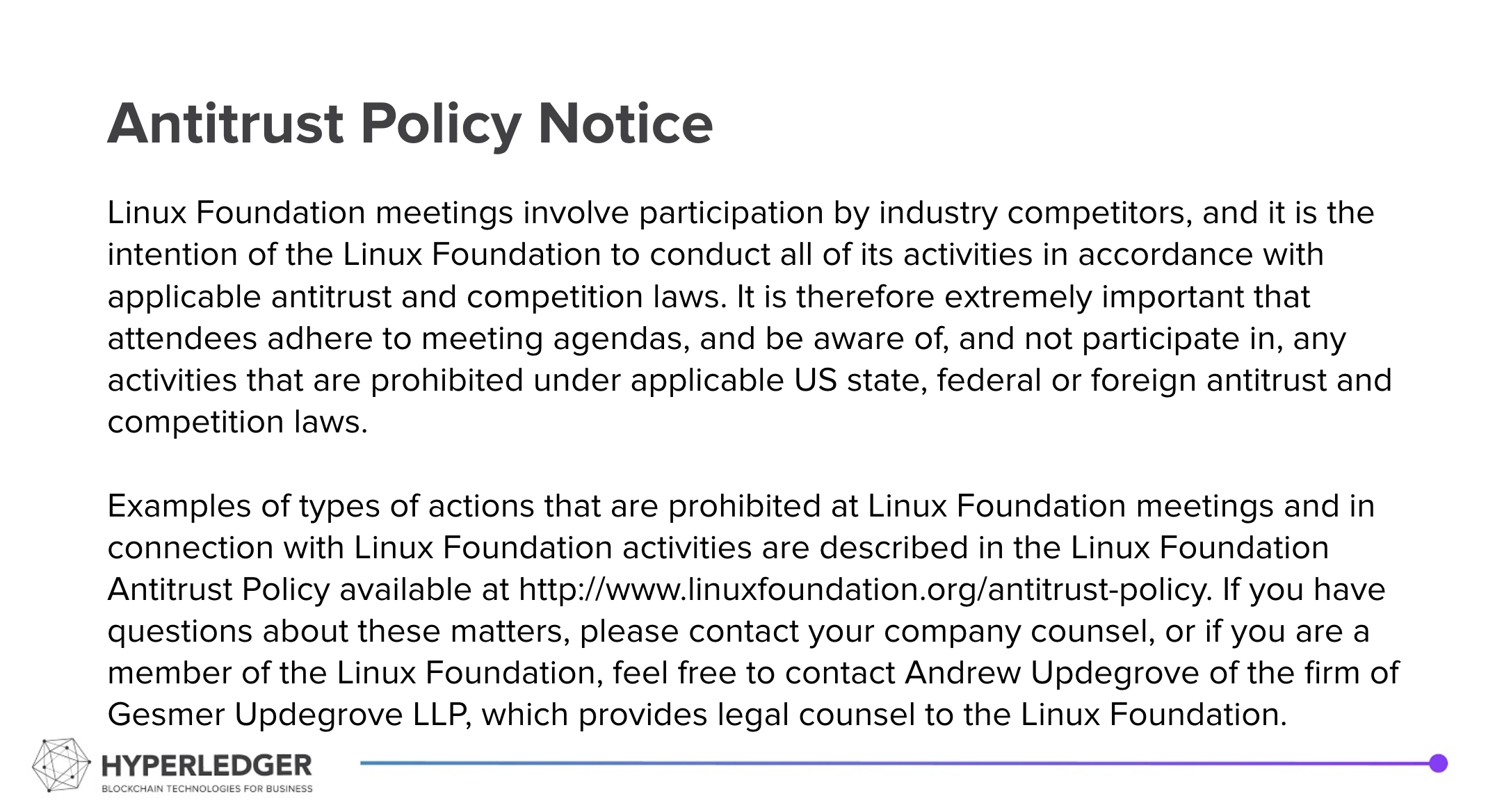Summary:
| Excerpt |
|---|
Topics:
|
Recording:
Call Time: 8:00 Pacific / 17:00 Central Europe
Recordings From the Call: :
| Widget Connector | ||
|---|---|---|
|
Hyperledger is committed to creating a safe and welcoming community for all. For more information please visit the Hyperledger Code of Conduct. |
|---|
Welcome, Introductions and Announcements
...
- Open PRs
- Open Issues:
- Anything hot that should be addressed before 1.0.0rc0?
- LTS Handling - Issue #2993, PR #3051
- Outlines the strategy
- Commits to LTS for 0.11.1 and 0.12.0
- Initial Questions:
- Policy for setting end dates for LTS.
- Release number for an LTS – seems we need both a minor number to be the LTS (e.g., 0.11.1), but we also need to have additional releases on the branch for identified vulnerabilities – how does that work?
- How are we notified of only the dependabot vulnerabilities that need fixing in an LTS?
- Questions from John Court (Deactivated) of Anonyome Labs about Universal DID Support:
- Universal DID Resolver support is there using the --universal-resolver switch to set server location (we actually have deployed this to support cheqd DIDs locally).
- Supported – directly in ACA-Py.
- The AnonCreds abstraction for native registrar and resolver implementation of AnonCred VC objects exists, being defined in aries_cloudagent/anaoncreds/base.py. Currently the only concrete implemenations I see is for legacy_indy in aries_cloudagent/anoncreds/default/legacy_indy/. The other default implementations seem to mostly have "NotImplemented" for most methods. This means someone could write a native AnonCreds registrar/resolver for other VDRs (e.g. cheqd). There is however no Universal AnonCreds equivalent community project to the Universal Resolver/Registrar that I can find.
- This is correct. Immediate goal is to get did:indy and did:tdw as the next concrete use cases.
- The real missing piece for me seems to be there is still no abstraction of the DID Registrar concept with that functionality still being tied to the aries_cloudagent/ledger code which is indy specific. This seems to be the point of https://github.com/hyperledger/aries-cloudagent-python/issues/1876 to resolve but has stagnated since 2022 ? \
- Attempted twice, and the conclusion seems to be that a Universal Registrar is a false optimization for ACA-Py – DIDs are too variable, and as such, the plugin approach is more appropriate, allowing a deployment to pick their own.
- did:web would be a good example, as will did:tdw.
- Infrastructure is there for adding an admin interface and secrets access via a plugin.
- Patrick St-Louis has been trying out GoDIDdy to see the range of types, and agrees that the plugin approach is more appropriate – deployments could add whatever plugins needed for an instance.
- Plugins should be documented in ACA-Py for how to do that – plugins in general, DID Registrar plugins specifically. aries-acapy-plugins is the place for them.
- The tails-server is currently indy specific and has no abstraction layer to deal with reading revocation registry data from non-indy VDRs.
- This should probably be changed to "anoncreds-tails-server".
- When ledger-agnostic AnonCreds was implemented, extra endpoints were added (with some verification), and the older Indy endpoints are still there with verifications tied to Indy.
- Should we extend out the functionality of what amounts to a file server to support other kinds of things – e.g. BitStringStatusList VCs, etc.? Generally yes, but the verification/authorization checks need to be appropriately applied.
- Question: What authorization is implemented in a Tails Server deployment?
- Endpoints are locked behind a reverse proxy so that only the issuers can write to the ledger.
- The tails files are hash checked, so you could not override an existing file.
- Universal DID Resolver support is there using the --universal-resolver switch to set server location (we actually have deployed this to support cheqd DIDs locally).
- Question: Possible issue with the
--preserve-exchange-recordsflag in acapy- If you don't have that flag enabled, there is no way to complete a proof request if you are the verifier.
- Should only be deleted AFTER the web-hook has fired to notify the controller.
- The web-hook is coming back as a "terse web-hook", that does not have sufficient information, and then it is a race condition between the controller and the deleter.
- Likely the fix needs to be making sure the webhook has sufficient info.
- Getting to a default Arm friendly release.
- Any progress? Nothing yet.
- Issue posted to Mattr with a request. Stephen Curran to follow up with the them and failing that – we look for an alternative.
- Other hot issues.
- Open Discussion
...

